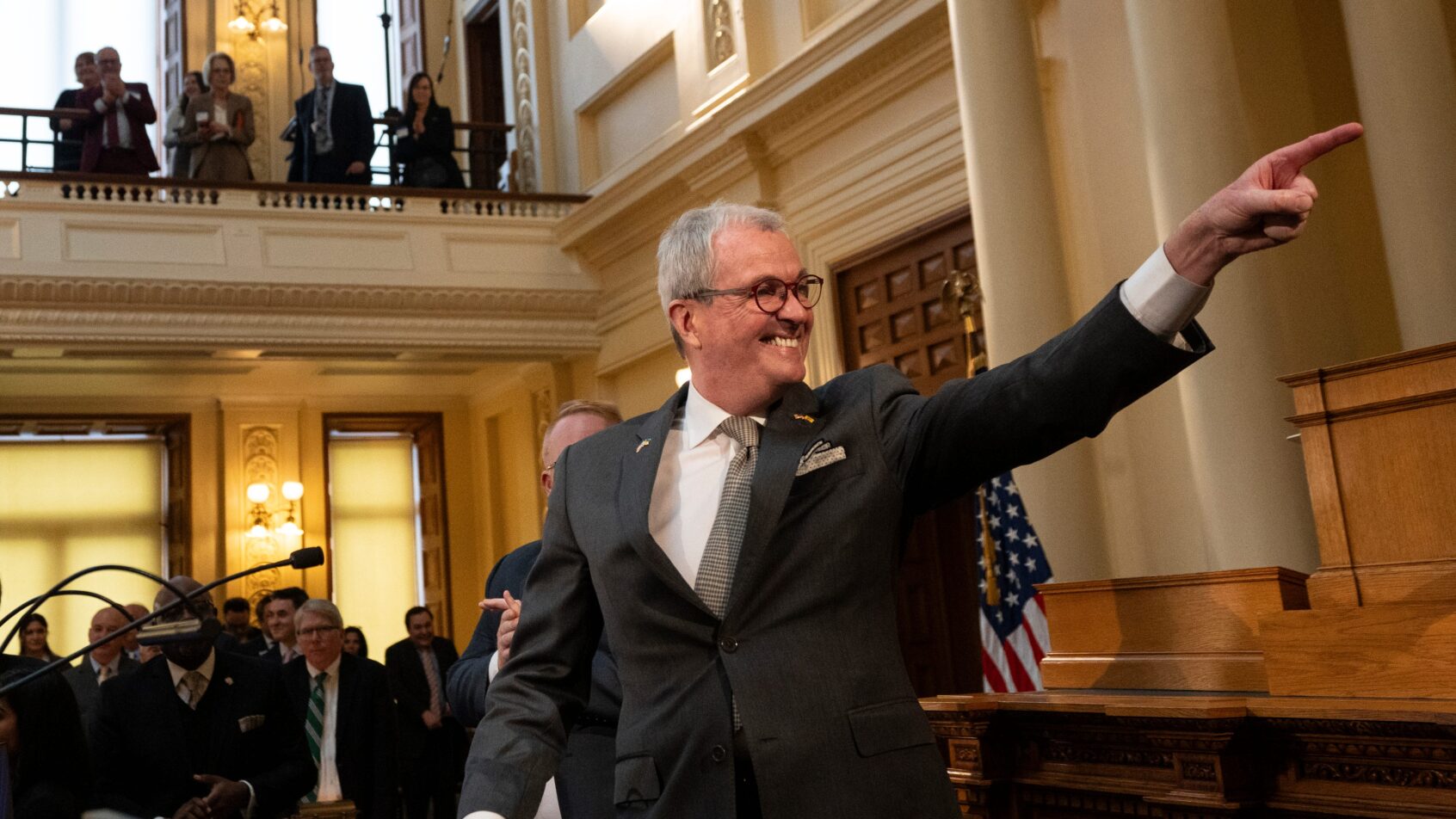NJ Governor Latest to Float Sports Betting, iGaming Tax Increase
By Robert Linnehan in Sports Betting News
Published:

- New Jersey Gov. Phil Murphy (D) proposed a sports betting and iGaming tax rate increase in latest budget
- Murphy is looking to increase both rates to 25%
- iGaming is currently taxed at a rate of 15%, while sports betting is taxed at 13%
New Jersey Gov. Phil Murphy (D) is the latest governor to propose an increase in gaming tax rates to raise revenues in his state budget.
Murphy today presented a record-setting $58.05 billion budget, his last as New Jersey’s governor. The budget includes a tax rate increase to 25% of adjusted revenues for both New Jersey online sports betting and iGaming.
The state currently taxes iGaming and online sports betting at a rate of 15% and 13% of adjusted revenues, respectively.
Millions More in Annual Revenue
The $58.05 billion budget includes a proposed surplus of $6.3 billion.
“Our budget proposal for the next fiscal year reflects our ongoing—and unrelenting—commitment to building a New Jersey that is stronger, fairer, and more prepared for the future,” Gov. Murphy said in a budget release. “Over the past seven plus years, we have made historic progress in advancing this mission, but we’re not done yet. And over the next year, our absolute top priority—as it has been since day one—is delivering economic security and opportunity to every New Jerseyan.”
The increased tax rates for online sports betting and iGaming are estimated to bring in an additional $402.4 million in revenue for FY 2026.
According to the state’s budget briefing, revenues from online sports betting and iGaming remain strong in FY 2025. The revised forecast of $642.2 million for the year is $23.6 million above the originally certified level,
Election Year May Increase Pushback to Taxes
A New Jersey industry insider with knowledge of the situation spoke with Sports Betting Dime today after Murphy’s proposal and stressed that this is just the beginning of the budgetary process. The state’s fiscal year does not end until June 30 and the tax increases will likely receive pushback from state legislators.
The insider noted that New Jersey is currently in an election year and the governor’s budget includes nearly a billion in new taxes, which includes increases to liquor, cannabis, and tobacco rates.
The New Jersey legislature may be wary of approving a budget with so many new taxes and tax rate increases during an election year for both the governor and New Jersey General Assembly.
Ohio, Maryland Governors Both Float Tax Increases
Murphy joins Ohio Gov. Mike DeWine (R) and Maryland Gov. Wes Moore (D) as the latest to submit a sports betting tax rate proposal for their respective states.
In early February, DeWine presented his two-year budget plan, which included an increase to the state’s sports betting tax rate from 20% to 40%.
Ohio lawmakers previously agreed to increase the state tax rate from 10% to 20% in 2023, just several months after launching sports betting.
The sports betting tax rate increase plan will bring in an additional $130 million to $180 million in revenues per year, DeWine said.
Moore released a budget plan in early January that addressed the state’s $3 billion deficit. Moore explained a plan to reduce government spending by $2 billion and place a higher income tax rate on residents who make more than $500,000 and $1 million a year.
Included in his plan is a hike on Maryland’s 15% sports betting tax rate to 30%, a 100% increase. Moore also proposed an increase to state casino table games, bumping the rate from 20% to 25%.

Regulatory Writer and Editor
Rob covers all regulatory developments in online gambling. He specializes in US sports betting news along with casino regulation news as one of the most trusted sources in the country.



